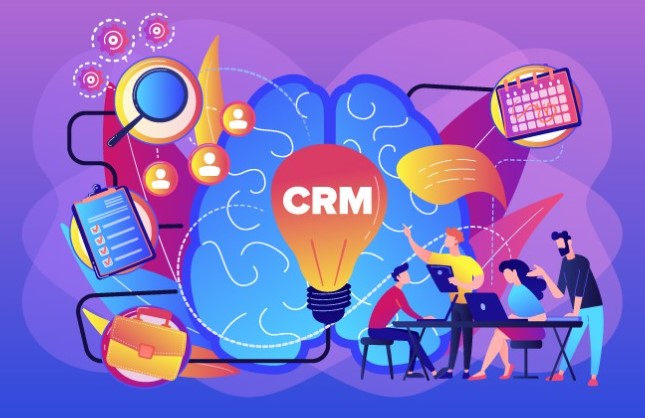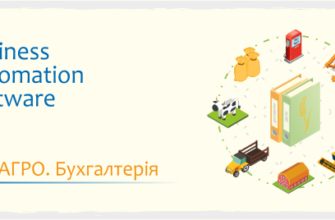In an era of digitalization and intense competition, customer relationship management (CRM) has become one of the key factors for successful business. But what is CRM, and what problems it helps to solve? In this article, we will discuss these issues.. 
What is CRM?
CRM or “Customer Relationship Management” – this is the approach, technology or system, which helps companies manage and analyze customer relationships. Modern CRM systems, offered on the website https://crmium.com, have a wide range of tools, from centralized storage of customer data to sophisticated analysis and prediction of customer behavior.
Why CRM is needed?
CRM plays an important role in improving customer relationships. It allows you to provide a personalized approach to each client, taking into account his preferences and history of interaction with the brand.
It also helps increase sales.. This is achieved by identifying sales opportunities, tracking leading indicators and evaluating the effectiveness of marketing campaigns. Besides, CRM improves staff performance. This happens by improving the coordination of work between departments and automating many routine tasks..
What problems does CRM solve??
CRM solves many problems, related to customer relationship management and sales growth:
- Data management. Provides a centralized repository of customer information, which facilitates access to this data and their analysis.
- Improving customer relationships. Keeps track of preferences, problems and interactions of customers with the brand, which helps to provide a better service.
- Sales increase. Identifies sales opportunities, tracks leading metrics and evaluates the effectiveness of marketing campaigns.
- Marketing Campaign Management. Allows you to plan, implement and monitor marketing campaigns, and analyze their results to improve future campaigns.
- Improving the efficiency of staff work. Improves coordination of work between different departments, such as the sales department, customer service and marketing. It simplifies information sharing and collaboration.
- Automation of everyday tasks. CRM can automate many routine tasks, related to sales and customer service, such as reminders for next steps in the sales funnel, registration of customer requests and so on.
CRM Use Cases
for example, a retail company can order CRM on the website https://crmium.com/uk/ to analyze customer purchase history, to offer them products, which they are likely to buy. An airline may use CRM to track customer travel preferences and offer them relevant special offers or services.. An IT company can use CRM to track customer complaints and requests, providing fast and efficient service.
Benefits of using CRM
Customer Relationship Management Systems (CRM) offer many business benefits, including the following:
- Centralization of information: CRM systems collect all customer data and store it in a single database. This provides easy access to information for all team members and simplifies data management..
- Improving customer relationships: CRM allows companies to improve customer relationships through personalized service and quick response to customer requests or concerns..
- Forecasting and analytics: Using CRM systems, you can analyze customer behavior, predict trends and improve marketing and sales strategies.
- Sales increase: CRM can help companies increase sales, following the process of interaction with clients from beginning to end and offering products or services, that may be of interest to a particular client.
- Help desk improvements: CRM simplifies the process of processing tickets and support calls, providing faster and more efficient response.
- Increasing employee productivity: By automating routine tasks, CRM allows employees to focus on more important aspects of the job, increasing their performance.
- Cost reduction: Although the implementation of a CRM system requires an initial investment, in the long run, it can reduce marketing and customer service costs, while increasing the efficiency of these processes.
- Improving communication within the company: CRM can help improve communication and collaboration across departments within a company., ensuring that all team members have access to the same customer data.
- Lead and Opportunity Management: CRM helps track and manage leads and opportunities, what can improve sales performance.
- History of customer relationships: CRM systems keep a complete history of contacts with customers, allowing employees to quickly review previous interactions and provide a better service.
- Customer segmentation: CRM allows for effective customer segmentation based on various criteria, which can help develop more targeted marketing campaigns.
- Mobile access: Most modern CRM systems offer mobile applications., which allows employees to have access to customer information and important data, being out of the office.
- Integration with other systems: CRM can be integrated with other systems and platforms, such as email systems, social networks and project management systems, which can increase productivity and work efficiency.
- Improving customer satisfaction: In the end,, all of these benefits can lead to higher levels of customer satisfaction, which can increase brand loyalty and improve the company's reputation.
Important to remember, that successful use of a CRM system requires careful planning and implementation, as well as continuous training and updating of knowledge of employees.
Conclusion
CRM is a powerful tool, which can help organizations improve customer interactions, increase sales and improve staff performance. Despite, that implementing CRM can take time and resources, advantages, which it brings, make it indispensable for modern business.











